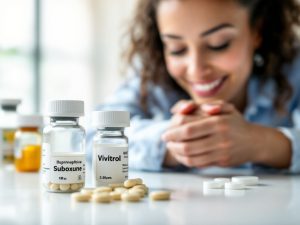Yoga art therapy music therapy can each play a significant role in your path toward better mental health and well-being. Whether you are dealing with stress, anxiety, depression, or a substance-use challenge, these holistic approaches combine movement, creative expression, and emotional support to help you gain a deeper sense of emotional balance. At Epic Health Partners, we recognize that an integrated approach to outpatient behavioral health, psychiatric, and substance-use care is often the most effective way to encourage positive, long-term change. By weaving together traditional evidence-based treatments and creative therapies, we offer you the support necessary for lasting recovery.
Below, you will discover how yoga, art therapy, and music therapy work, why they matter for your well-being, and how Epic Health Partners can help you or your loved one thrive. This overview highlights the unique challenges individuals face, explains how these tailored treatment programs can address those obstacles, and explores how holistic methods support your journey to healthier living.
Explore holistic therapeutic approaches
Holistic therapeutic approaches address both your physical and emotional well-being, taking into account the interconnected nature of your mind and body. By integrating creative arts, mindfulness exercises, and movement, you benefit from complementary methods that reinforce your progress in behavioral health or substance-use treatment.
- Yoga focuses on harmony between your body and mind, building physical strength, flexibility, and mental focus.
- Art therapy fosters self-awareness and reduces internal conflicts by providing a supportive environment for creative expression.
- Music therapy harnesses melodies and rhythms to elevate mood, relieve stress, and unlock blocked emotions.
When you combine these approaches with traditional care, you create a comprehensive path toward emotional resilience and physical wellness. Each of these therapies encourages you to develop coping skills, process complex emotions, and build self-confidence, all of which can promote progress in an outpatient setting.
Recognize the value of yoga in recovery
Yoga is more than just physical exercise. It unites body, mind, and breath, promoting a state of calm and centeredness. You may find that yoga helps you cultivate mindfulness, improve your emotional regulation, and reduce stress while boosting self-awareness. Additionally, yoga offers flexible practice options suitable for various physical capabilities.
How yoga supports your well-being
- Encouraging deep breathing. Deep breathing techniques calm both the mind and body, which may help alleviate symptoms of anxiety and depression.
- Building physical resilience. Poses that improve strength and balance can help you feel more grounded and empowered, essential qualities during challenging phases of recovery.
- Promoting mindfulness. Gentle stretches and guided movements channel your focus toward the present moment, reducing rumination and stress.
According to research from NCBI, yoga practices like Kundalini yoga or Yoga Nidra can improve muscle strength, deepen relaxation, and enhance emotional balance. If you are balancing a hectic schedule or facing significant life demands, short, consistent yoga sessions can help you re-center, manage anxiety, and boost overall mental health.
Discover how art therapy supports healing
Art therapy uses creativity and self-expression as a pathway to emotional insight. When you paint, draw, or work with other art forms, you explore thoughts and feelings in a way that might be more natural than traditional talk therapy alone.
Benefits of art therapy
- Sharing your experiences visually. Many people find it easier to depict emotions through images rather than verbal descriptions.
- Inspiring self-reflection. You might notice patterns in your artwork that reveal core issues, guiding your treatment professionals toward better-focused strategies.
- Alleviating distress. Activities like painting or shaping clay can reduce tension, promote relaxation, and lessen depression symptoms.
The University of Rochester Medical Center points out that art therapy helps individuals process deep emotions, improve mood, and relieve stress. This therapy does not require you to be an artist. Instead, it encourages exploration through color, shapes, and textures, alleviating negative emotion with support from trained therapists. In the context of behavioral health care, art therapy offers you a unique way to address underlying trauma, gain fresh perspectives on life challenges, and cultivate a sense of accomplishment.
Uncover the impact of music therapy
Music has a powerful effect on your emotions. A particular rhythm or melody can spark memories, lift your spirits, and help integrate challenging experiences. When you incorporate music therapy into your outpatient treatment, you give yourself an opportunity to connect with these feelings in a safe and guided setting.
Positive outcomes of music therapy
- Improving mood and reducing anxiety. Feeling tense or fearful is common during recovery, but soothing melodies can buffer stress, helping you relax.
- Encouraging self-expression. Singing, drumming, or writing songs can be a liberating process that unearths deeply rooted emotions.
- Fostering a sense of community. Group sessions featuring shared musical experiences and rhythms create camaraderie that supports personal growth.
Studies in PubMed Central indicate that music therapy can shorten stage-two sleep duration, boost rapid eye movement (REM) sleep, and contribute to overall improvements in rest quality. By incorporating music therapy into your outpatient behavioral health plan, you can discover new ways to cope with insomnia, racing thoughts, or even restlessness, ultimately lightening your emotional burden.
Combine holistic therapies with evidence-based treatments
While yoga, art therapy, and music therapy each hold unique strengths, you benefit most when these methods complement proven clinical interventions. Evidence-based treatments, such as cognitive behavioral therapy, medication management, or structured programs like an intensive outpatient program iop, can mesh seamlessly with creative therapies.
Integrated approach for comprehensive care
- Cognitive and emotional insights. Conventional talk therapy methods, including cognitive behavioral therapy cbt, target negative thought patterns. Yoga and creative therapies gently support the emotional breakthroughs you experience during these sessions.
- Physical health and symptom management. When you add yoga to your routine, it can enhance resilience and reduce stress. Alongside medication assisted treatment mat, yoga may help shift personal habits and offer a holistic response to withdrawal symptoms.
- Team-based collaboration. Your treatment team can communicate daily about your progress, adjusting interventions so all therapies align with your evolving goals. If you need partial hospitalization program php or telehealth options, a coordinated model ensures consistent, personalized support.
This integrated approach recognizes that healing rarely happens in isolation. By viewing your treatment from multiple angles, you create a foundation for lasting and meaningful transformation.
Embrace a supportive environment at Epic Health Partners
Epic Health Partners emphasizes creating a supportive environment where your entire being is acknowledged and nurtured. We understand that the path to recovery involves building trust, exploring personal experiences, and patient-centered guidance. Our tailored treatment programs integrate a range of modalities to ensure comprehensive care, whether you need help for substance use, mental health conditions, or psychiatric support.
Our commitment to individualized plans
- Detailed assessment. We begin by listening to your story, understanding your unique challenges, and tailoring a specific plan that resonates with your experiences.
- Personalized therapy options. Our outpatient behavioral health model includes substance use outpatient therapy, therapy groups, and creative interventions like art or music-based activities.
- Consistent follow-up. As you progress, we adapt your plan to meet new goals, exploring additional services such as telehealth therapy services, suicide crisis intervention if needed, or case management sud for those requiring long-term support.
We also know that co-occurring mental health issues frequently accompany substance-use disorders, so we provide co occurring disorders treatment. This approach addresses every dimension of your care, from psychiatric evaluation to peer support and relapse prevention.
Discover the Epic Health Partners advantage
When you or your loved one chooses Epic Health Partners for outpatient behavioral health, psychiatric, and substance-use care, you are joining a network of committed professionals who combine proven clinical interventions with holistic wellness support. Below is a glimpse of our integrated offerings that strengthen body, mind, and spirit:
Core outpatient programs
- Intensive outpatient program iop. Ideal for those transitioning from higher levels of care or requiring more structured support than traditional therapy alone.
- Partial hospitalization program php. Offers a high level of medical and therapeutic oversight while letting you return home each evening.
- Telehealth therapy services. Delivers mental health and substance-use therapy remotely for convenience and accessibility.
Holistic wellness support
- [Yoga-inspired approaches]. We encourage gentle stretching, breathwork, and mindfulness for stress relief.
- [Artistic expression]. Integrating creative outlets into treatment programming to help you process emotions more effectively.
- [Music-based sessions]. Incorporating rhythm and melody to inspire positivity, social bonding, and deeper self-reflection.
Psychiatric and crisis care
- Psychiatric evaluation outpatient. Access thorough diagnostic assessments and ongoing medical oversight when needed.
- Comprehensive crisis services. Obtain immediate guidance and support during mental health emergencies.
- Medication management. Receive the right medications and dosage, ensuring safety and effectiveness.
Substance-use and addiction services
- Substance use outpatient therapy. Participate in group, individual, or family-based interventions targeting recovery goals.
- Medication assisted treatment mat. Manage cravings and withdrawal symptoms under the guidance of licensed providers.
- Relapse prevention planning. Develop robust coping strategies to maintain progress and avoid future setbacks.
By coupling evidence-based clinical care with yoga, art, and music-based therapies, we foster a nurturing space that celebrates your strengths. This balanced model supports you in overcoming obstacles and building the resilience needed for a healthier future.
See how body-and-mind therapies benefit sleep
Even though outpatient treatment addresses many dimensions of your care, you might wonder how to tackle insomnia or restlessness that often accompanies anxiety or substance-use recovery. Behavioral health specialists sometimes suggest yoga, art therapy, and music therapy as part of an integrated approach to better sleep.
- Yoga postures combined with soothing breathwork calm your nervous system, leading to improved rest.
- Art therapy can ease mental clutter by giving you a tangible outlet for worries, allowing your mind to relax before bedtime.
- Gentle melodies, used during music therapy, create a sense of peace that helps you wind down.
Some research from NCBI indicates that virtual reality meditation, which often blends guided imagery with calming soundtracks, has significant effects on improving sleep patterns. When your mind and body are more balanced, your daily functioning often improves, which contributes to a steady path toward recovery and emotional stability.
Cultivate emotional regulation and self-awareness
One major benefit of combining creative arts and mindfulness practices is the improved ability to regulate emotions. This aspect can be especially powerful if you or your loved one is dealing with co-occurring disorders. Art-making or musical expression, for instance, allows you to channel complex feelings into constructive creativity, making them easier to process in therapy sessions.
Meanwhile, yoga-based movement can help you observe emotional shifts in real-time by linking breath to each moment of awareness. When you develop a mind-body connection, you gain the clarity and resilience needed to identify triggers, manage stress, and break unhelpful cycles. Over time, these self-regulation skills become cornerstones of your recovery journey.
Integrate group and individual sessions
Treatment at Epic Health Partners often involves both group and individualized experiences. A supportive environment reduces feelings of isolation, which can be key if you are coping with serious mental health or substance-use concerns. As you progress, you might combine:
- Individual therapy sessions. Personalized attention from your provider ensures targeted interventions, whether you are working through trauma or seeking new coping mechanisms. Check out our individual therapy mental health offering if you want one-on-one support.
- Group therapy. Learning from peers who share similar challenges can build camaraderie. By discussing topics like addiction, family stress, or life transitions in a confidential group, you realize you are not alone. For more details, explore group therapy mental health.
- Adjunct creative classes. These sessions may incorporate art projects, simple yoga poses, or guided listening exercises, helping you explore body-and-mind synergy.
This model simulates a peer-supported environment where mutual understanding fosters deeper personal growth. Additionally, the sense of accountability and shared encouragement within group sessions can be transformative in sustaining your commitment to healthier habits.
Empower family involvement
Families and loved ones can play a pivotal role in your journey. If appropriate, we encourage participation in sessions that introduce yoga, art therapy, or music therapy concepts to everyone involved. By sharing these experiences, you might find new ways to communicate, address misconceptions, and foster a more stable, supportive home environment.
- Collaborative art exercises allow families to visualize shared goals.
- Joint music therapy sessions encourage bonding through shared rhythm or melody.
- Family-assisted yoga sessions offer moments of calm and reflection, modeling healthy stress-management techniques.
If you feel that your household could benefit from targeted support, our family counseling mental health services offer strategies for open dialogue and conflict resolution. This team approach can facilitate understanding around unique challenges, uniting loved ones in pursuit of comprehensive care.
Strengthen relapse prevention efforts
By complementing evidence-based treatments with creative therapies, you strengthen your overall relapse prevention strategies. Traditional approaches focus on avoiding high-risk scenarios, modifying harmful thought patterns, and establishing strong support systems. Yoga, art therapy, and music therapy add a layer of emotional grounding and ongoing motivation.
Relapse prevention planning includes:
- Identifying triggers. You and your therapist can detect situations or emotional states that precede substance use or mental health crises.
- Replacing harmful behaviors. Instead of turning to old habits, you can channel anxiety or sadness into painting, journaling, or meditative breathing.
- Engaging in consistent self-reflection. Creative sessions or yoga routines serve as daily reminders to remain present, mindful, and dedicated to recovery.
Our relapse prevention planning integrates these components into a personalized plan. Whenever you feel overwhelmed, holistic techniques can help you manage your emotions proactively, giving you the best chance at maintaining a healthier lifestyle.
Frequently asked questions
1. How can yoga art therapy music therapy support my recovery?
These therapies use movement, creativity, and musical expression to address emotional barriers, reduce stress, and encourage holistic healing. They complement evidence-based methods by supporting better emotional balance and offering new ways to handle negative thoughts or triggers. Combined with outpatient programs like substance use outpatient therapy, you gain a fuller toolkit for lasting change.
2. Do I need prior experience in art or music to benefit?
No. Art therapy and music therapy are not about expertise. They focus on self-expression and emotional exploration. You do not have to be an accomplished painter or musician to engage in these programs. Qualified therapists guide you to ensure you feel comfortable, motivated, and open to the therapeutic process.
3. Will these therapies replace my current treatment plan?
Holistic therapies do not replace your existing treatment. Instead, they amplify its benefits. For instance, you can continue talk therapy or medication management while incorporating yoga, art therapy, or music therapy to help deepen your healing process. Your team at Epic Health Partners will coordinate care to make sure every modality fits seamlessly into your tailored treatment plan.
4. Can these therapies help me if I have co-occurring disorders?
Absolutely. Many individuals battle mental health conditions alongside substance use. Creative therapies can help you process intense emotions and ease sadness or anxiety. We also offer co occurring disorders treatment to address both issues at once. By incorporating art, music, and mindful movement, you can foster stability across all treatment areas.
5. How do I get started with Epic Health Partners?
Begin by setting up an assessment, which helps us understand your unique challenges and personal goals. From there, we design an individualized plan, which may include yoga-inspired sessions, creative workshops, evidence-based talk therapy, or group sessions. Our commitment to compassionate care ensures you receive comprehensive support at every stage of your recovery.
Move forward with hope and healing
At Epic Health Partners, we believe you deserve an environment that merges time-tested clinical treatments with innovative, holistic methods. By embracing both clinical therapy and yoga, art therapy, or music therapy, you create a balanced path to healing that acknowledges not just the symptoms of your condition, but also the strengths you already possess.
We welcome you or your loved one to explore our range of outpatient behavioral health, psychiatric, and substance-use services. Whether you are seeking telehealth therapy services, an intensive outpatient program iop, or simply want more insight into how creative therapies can support your journey, our specialized team stands ready to guide you.
When you choose Epic Health Partners, you are investing in a future where emotional health, personal growth, and a sense of empowerment become the backdrop against which you reclaim wellness. From the comforting embrace of a supportive environment to the tangible progress gained through movement, art, or music, we are here every step of the way, offering the tailored treatment programs and comprehensive care you need for lasting recovery.







